Coffee is a morning staple for many people, but nothing can ruin a good cup of coffee like a sour taste. If your coffee tastes sour, don’t worry – it’s not uncommon, and there are ways to fix it.

In this article, we’ll explore the different reasons why coffee can taste sour and provide practical tips on how to make your coffee taste better.
Understanding Why Coffee is Sour
The Role of Acidity in Coffee
Acidity is a crucial element of coffee that can significantly impact its taste and flavor.
What is Acidity in Coffee?
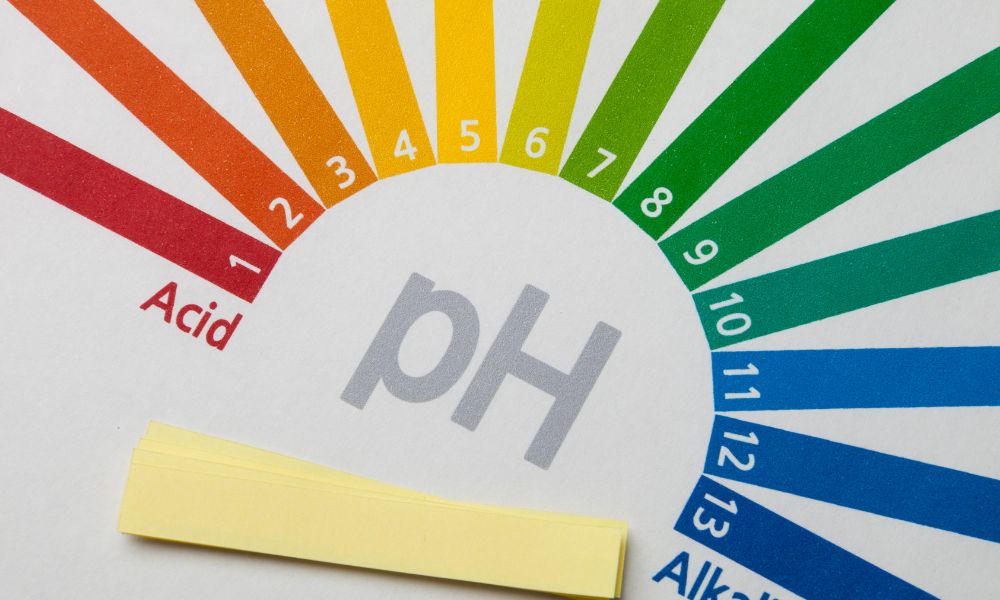
When we talk about acidity in coffee, we are not referring to the pH level of the coffee itself. Instead, we are referring to the flavor notes that give coffee its bright and tangy taste. Acidity in coffee is a desirable quality that can bring out the flavor and aroma of the coffee beans.
How Does Acidity Affect the Taste of Coffee?
Acidity can affect the taste of coffee in several ways. Firstly, acidity can give coffee a bright and tangy taste that can make it more refreshing and enjoyable to drink. Acidity can also bring out the fruitiness and floral notes of the coffee, giving it a more complex flavor profile.
On the other hand, too much acidity can make the coffee taste sour or bitter. It is crucial to strike the right balance of acidity in coffee to avoid ruining its taste.
What are Some Common Types of Acidic Coffee Beans?
Kenyan Coffee
Kenyan coffee is known for its bright and tangy taste. It has a high acidity level and often has notes of citrus and berry.
Ethiopian Coffee
Ethiopian coffee is another popular type of acidic coffee. It has a complex flavor profile that includes fruity and floral notes. It is often described as having a wine-like taste.
Colombian Coffee
Colombian coffee is one of the most popular types of coffee in the world. It has a mild acidity level and often has notes of chocolate, caramel, and nuts.
Costa Rican Coffee
Costa Rican coffee is known for its bright and tangy taste. It has a high acidity level and often has notes of citrus and honey.
The Role of Brewing Methods in Sour Coffee
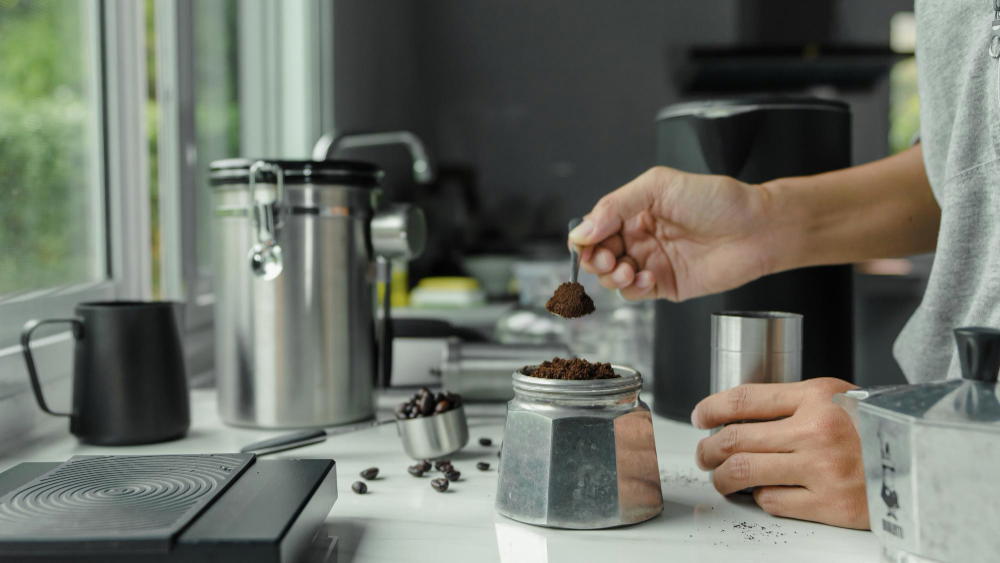
What Factors Influence the Sourness of Coffee?
Bean Quality
The quality of the coffee beans you use can impact the sourness of the coffee. Poor quality beans can taste sour and stale, while high-quality beans will have a more balanced taste.
Roast Level
The roast level can also affect the sourness of coffee. Over-roasting can cause the coffee to lose its natural sweetness, leading to a sour and bitter taste.
Water Temperature
The water temperature used to brew the coffee can affect its sourness. If the water is too cold, it can cause the coffee to taste sour. If the water is too hot, it can cause the coffee to taste burnt and bitter.
Extraction Time
The extraction time can also affect the sourness of coffee. If the coffee is under-extracted, it can taste sour and weak. If the coffee is over-extracted, it can taste bitter and sour.
How Can Over-Extraction Cause Sourness?
Over-extraction occurs when the coffee grounds are exposed to water for too long. This can cause the coffee to become bitter and sour. Over-extraction can happen when the grind size is too fine, or the water temperature is too hot.
How Can Under-Extraction Cause Sourness?
Under-extraction occurs when the coffee grounds are not exposed to water for long enough. This can cause the coffee to become sour and weak. Under-extraction can happen when the grind size is too coarse, or the water temperature is too cold.
The Role of Water in Sour Coffee
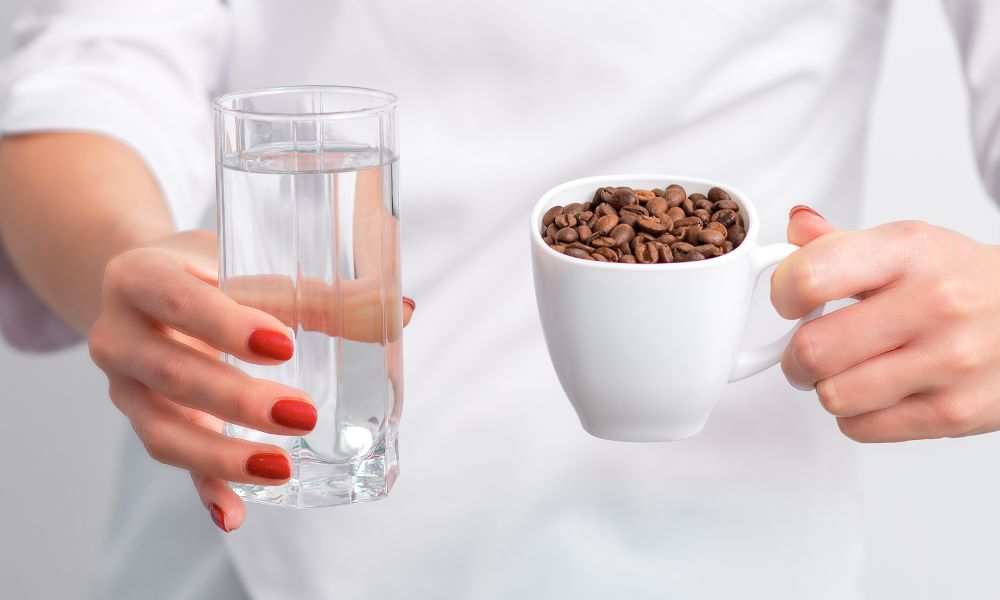
Water is a crucial element in coffee brewing and can significantly impact the taste of your coffee, including its sourness.
How Does Water Quality Affect Coffee Taste?
Water quality can have a significant impact on the taste of your coffee. Water that is too hard or too soft can affect the coffee’s acidity, leading to sour or bitter flavors. Additionally, water that has an unpleasant taste or odor can also affect the coffee’s taste.
What are Some Common Water Issues That Can Cause Sourness in Coffee?
Hard Water
Hard water has a high mineral content, particularly calcium and magnesium. These minerals can affect the coffee’s acidity, making it taste sour or bitter.
Soft Water
Soft water has a low mineral content and can make coffee taste flat or weak. Soft water can also cause over-extraction, leading to sourness.
Chlorine or Chloramine
Chlorine or chloramine is often used to disinfect municipal water supplies. However, it can affect the coffee’s taste, making it taste sour or chemically.
How Can You Fix Sour Coffee Caused by Water Issues?
If your coffee tastes sour due to water issues, there are several things you can do:
Use Filtered Water
Using filtered water can help to remove impurities that can affect the coffee’s taste. A water filter can remove minerals, chlorine, and other contaminants that can cause sourness.
Adjust Water Hardness
If your water is too hard, you can adjust the hardness by using a water softener or adding a small amount of vinegar to the water. If your water is too soft, you can add minerals using a water mineralizer.
Adjust Brew Time
If your coffee tastes sour due to over-extraction caused by soft water, you can adjust the brew time to shorten it. This can help to avoid over-extraction and reduce sourness.
Use Bottled Water
Using bottled water can help to avoid water issues that can cause sourness. However, make sure to choose water with low mineral content to avoid making the coffee taste flat or weak.
How to Fix Sour Coffee
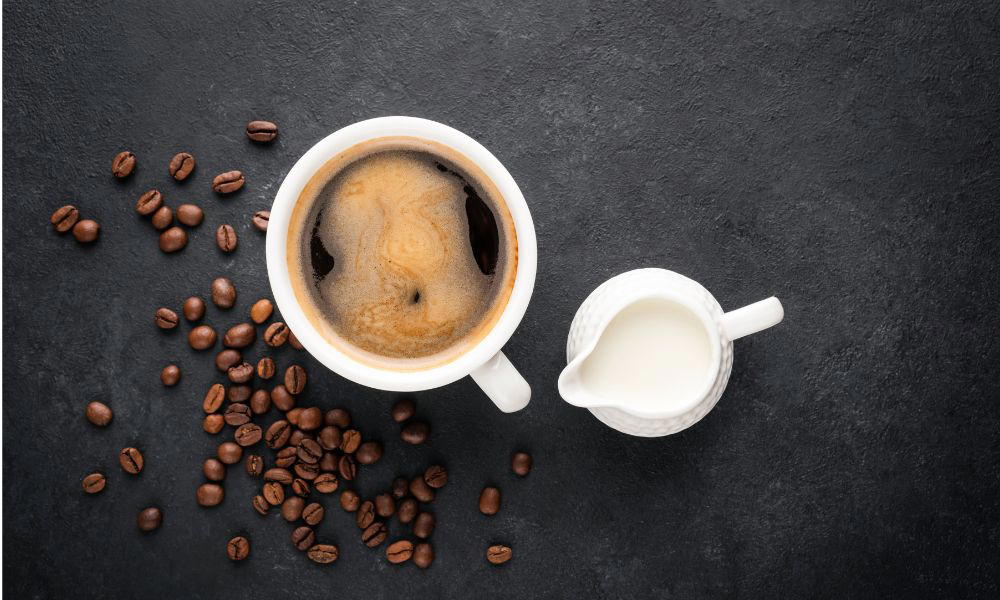
Adjusting the Coffee-to-Water Ratio
The coffee-to-water ratio is a crucial element in coffee brewing that can significantly impact the taste of your coffee, including its sourness.
What is the Ideal Coffee-to-Water Ratio?
The ideal coffee-to-water ratio is subjective and depends on personal taste preferences. However, a general guideline is to use 1-2 tablespoons of coffee per 6 ounces of water. This ratio will result in a strong and flavorful coffee.
How Can You Adjust the Ratio to Fix Sour Coffee?
If your coffee tastes sour, you can adjust the coffee-to-water ratio to fix it. Here are some tips:
Increase the Coffee Amount
Increasing the amount of coffee can help to reduce the sourness. You can try adding an extra tablespoon of coffee for every 6 ounces of water.
Decrease the Water Amount
Decreasing the water amount can also help to reduce the sourness. You can try reducing the water by 1-2 ounces and see if it improves the taste.
Adjust Both Coffee and Water Amounts
You can also adjust both the coffee and water amounts to find the perfect ratio. Experiment with different ratios until you find the right balance.
How Do Different Brewing Methods Require Different Ratios?
Different brewing methods require different coffee-to-water ratios to achieve the ideal taste. Here are some general guidelines:
| Brewing Method | Grind Size | Ideal Coffee-to-Water Ratio |
| French Press | Coarse | 1:15 (1 part coffee to 15 parts water) |
| Drip Coffee | Fine | 1:20 |
| Pour Over | Medium-fine | 1:17 |
| Espresso | Fine | 1:2 |
Adjusting the Grind Size
The grind size is a crucial element in coffee brewing that can significantly impact the taste of your coffee, including its sourness.
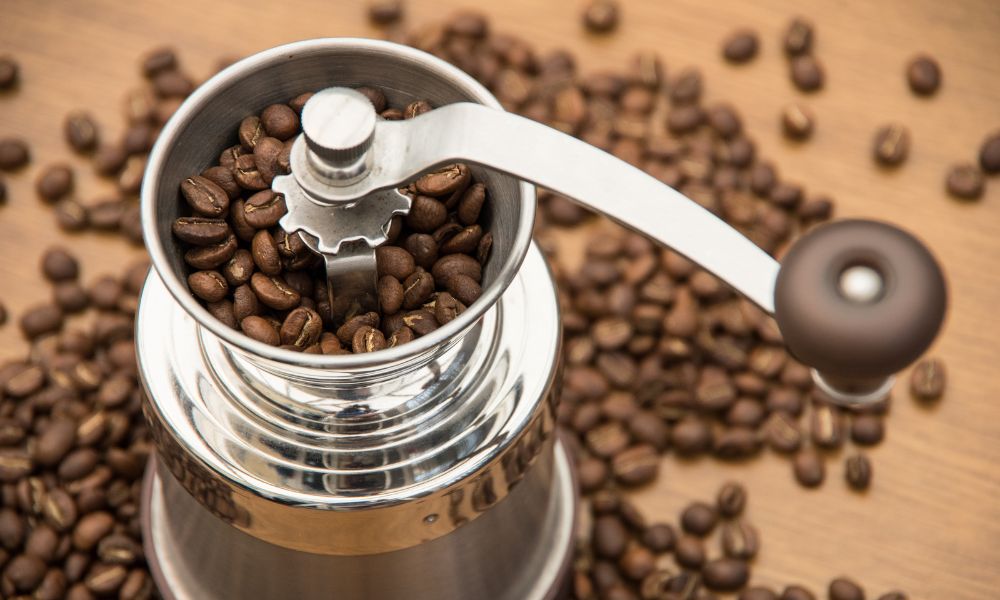
What is Grind Size and How Does it Affect Coffee Taste?
Grind size refers to the size of the coffee particles that are produced when coffee beans are ground. The grind size can affect the coffee taste by influencing the surface area and extraction rate of the coffee.
A finer grind size will increase the surface area of the coffee, making it easier for water to extract the coffee’s flavors and aromas. This can lead to a more intense and flavorful coffee. A coarser grind size will decrease the surface area, resulting in a weaker and less flavorful coffee.
How Can Grind Size Cause Sour Coffee?
Grind size can cause sour coffee if the coffee is under-extracted. When coffee is under-extracted, it means that the water has not had enough time to extract the flavors and aromas from the coffee. This can cause the coffee to taste sour and weak. A too coarse grind size can cause under-extraction.
How Can You Adjust the Grind Size to Fix Sour Coffee?
Use a Finer Grind
Using a finer grind size can help to increase the surface area of the coffee, allowing the water to extract more flavors and aromas. Experiment with different grind sizes until you find the right balance.
Adjust Brew Time
If your coffee is sour due to under-extraction, you can adjust the brew time to give the water more time to extract the coffee’s flavors and aromas. Experiment with different brew times until you find the right balance.
Adjust the Water Temperature
If your coffee is sour due to under-extraction, you can also adjust the water temperature to improve extraction. The ideal water temperature for brewing coffee is between 195°F and 205°F.
Adjusting Brew Time and Temperature
The brewing time and temperature are crucial elements in coffee brewing that can significantly impact the taste of your coffee, including its sourness.
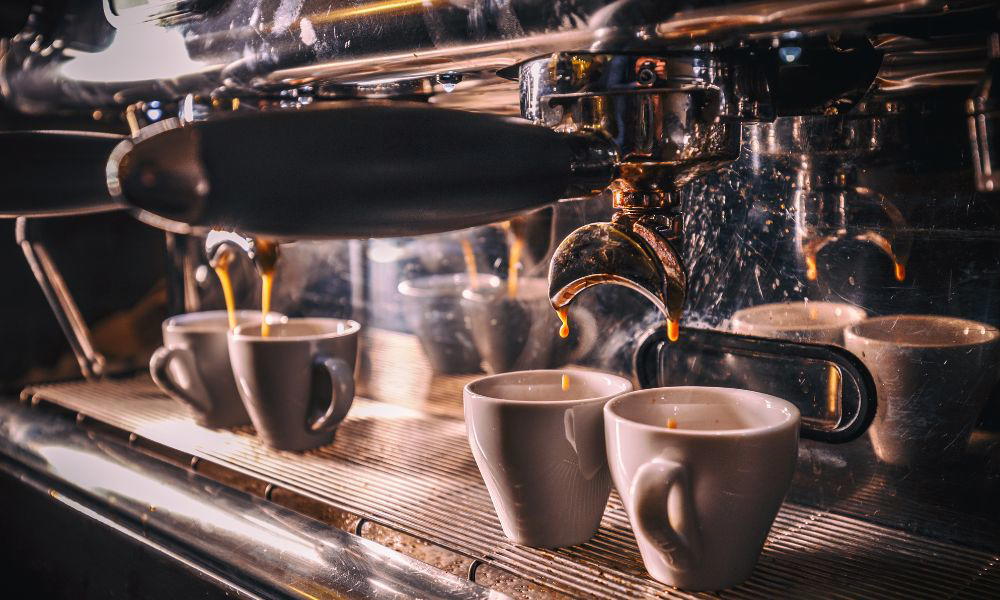
How Does Brew Time and Temperature Affect Coffee Taste?
Brew time and temperature can affect the coffee taste by influencing the extraction rate and the solubility of the coffee’s flavors and aromas. The ideal brew time and temperature will depend on the coffee-to-water ratio, the coffee grind size, and the brewing method.
A longer brew time and higher water temperature will increase the extraction rate, resulting in a more intense and flavorful coffee. A shorter brew time and lower water temperature will decrease the extraction rate, resulting in a weaker and less flavorful coffee.
How Can Brewing Time and Temperature Cause Sour Coffee?
Brewing time and temperature can cause sour coffee if the coffee is under-extracted. When coffee is under-extracted, it means that the water has not had enough time to extract the coffee’s flavors and aromas. This can cause the coffee to taste sour and weak.
A too short brew time or low water temperature can cause under-extraction and result in sour coffee.
How Can You Adjust Brew Time and Temperature to Fix Sour Coffee?
Increase Brew Time
Increasing the brew time can help to improve extraction and reduce sourness. Experiment with longer brew times until you find the right balance.
Increase Water Temperature
Increasing the water temperature can also help to improve extraction and reduce sourness. The ideal water temperature for brewing coffee is between 195°F and 205°F.
Adjust Coffee-to-Water Ratio
If your coffee is sour due to under-extraction, you can also adjust the coffee-to-water ratio. Use more coffee or less water to improve extraction and reduce sourness.
Adjust Grind Size
If your coffee is sour due to under-extraction, you can also adjust the grind size. Use a finer grind size to increase surface area and improve extraction.
Preventing Sour Coffee
The freshness of coffee is a crucial element in coffee brewing that can significantly impact the taste of your coffee, including its sourness.

What is the Importance of Fresh Coffee?
Fresh coffee is important because coffee beans begin to lose their flavor and aroma soon after they are roasted. The longer coffee sits, the more it loses its freshness and flavor. Buying fresh coffee and grinding it just before brewing can help to ensure that you get the best possible taste from your coffee.
How Can You Tell If Coffee is Fresh?
You can tell if coffee is fresh by looking at the roast date. Coffee should be used within 2-3 weeks of the roast date for the best possible taste. Additionally, fresh coffee beans will have a strong and pleasant aroma, while stale coffee beans will have a dull and unpleasant smell.
How Can Buying Fresh Coffee Prevent Sourness?
Buying fresh coffee can help to prevent sourness because fresher coffee beans will have a higher acidity level. As coffee beans age, their acidity level decreases, which can lead to a sour taste. By buying fresh coffee, you can ensure that the coffee’s acidity level is at its optimal level, resulting in a better taste.
Additionally, buying fresh coffee and grinding it just before brewing can help to ensure that the coffee is not under-extracted. Under-extraction can cause sourness, and using fresh coffee beans can help to ensure that the coffee is properly extracted.
Proper Storage of Coffee
Proper storage of coffee is crucial to maintaining its freshness and flavor.
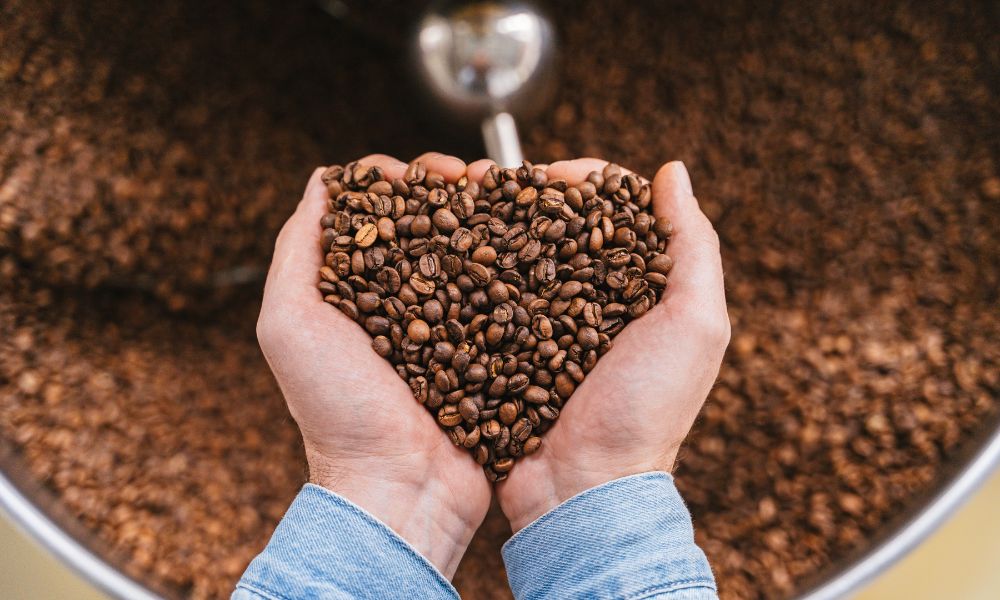
What are the Best Ways to Store Coffee?
The best ways to store coffee are in airtight containers away from heat, light, and moisture. Here are some tips for proper coffee storage:
- Use an airtight container to prevent air from oxidizing the coffee and causing it to go stale.
- Store coffee in a cool, dry, and dark place, away from heat, light, and moisture.
- Do not store coffee in the refrigerator or freezer, as the moisture and odors can affect the taste of the coffee.
- Do not grind coffee until just before brewing, as ground coffee goes stale much faster than whole bean coffee.
How Can Improper Storage Cause Sour Coffee?
Improper storage can cause sour coffee by allowing the coffee to become stale. When coffee beans are exposed to air, heat, light, or moisture, they begin to lose their freshness and flavor. This can cause the coffee to taste sour and weak.
Additionally, storing coffee in the refrigerator or freezer can cause condensation to form on the beans, which can lead to moisture and stale coffee.
How Can Proper Storage Prevent Sourness?
Proper storage can prevent sourness by keeping the coffee fresh and flavorful. Storing coffee in an airtight container away from heat, light, and moisture can help to ensure that the coffee stays fresh for longer. Using whole bean coffee and grinding it just before brewing can also help to ensure freshness.
Cleaning Your Coffee Equipment
Cleaning your coffee equipment is an important part of maintaining the quality of your coffee.
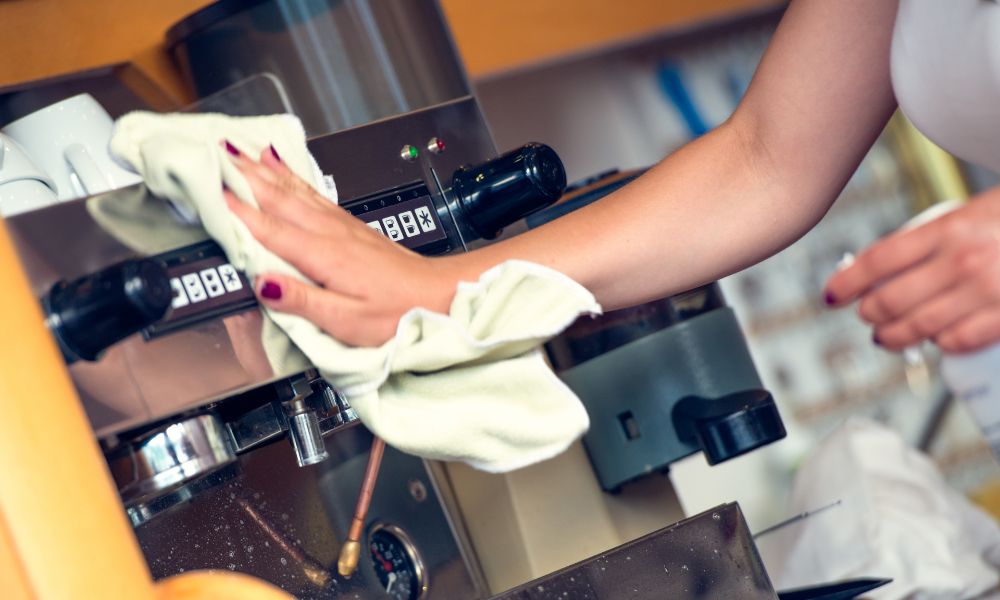
How Does Coffee Equipment Affect the Taste of Coffee?
Coffee equipment can affect the taste of coffee by leaving behind residue or affecting the brewing temperature. Dirty equipment can also lead to bacterial growth, which can affect the taste of the coffee.
Additionally, equipment that is not calibrated correctly can result in over-extraction or under-extraction, which can cause the coffee to taste sour or bitter.
How Can Dirty Equipment Cause Sour Coffee?
Dirty equipment can cause sour coffee by leaving behind residue that can affect the taste of the coffee. Additionally, bacterial growth can affect the taste of the coffee, leading to sourness.
Dirty equipment can also affect the brewing temperature, resulting in under-extraction, which can cause the coffee to taste sour.
How Can Cleaning Your Equipment Prevent Sourness?
Cleaning your equipment can prevent sourness by ensuring that it is free of residue and bacteria. Regular cleaning can also help to maintain the correct brewing temperature and prevent under-extraction, which can cause sourness.
Here are some tips for cleaning your coffee equipment:
- Clean your equipment regularly with soap and water, following the manufacturer’s instructions.
- Use a dedicated brush to clean hard-to-reach areas, such as the crevices of a grinder.
- Use a descaling solution to remove mineral buildup in your coffee maker or espresso machine.
- Clean your equipment after each use to prevent residue buildup.
Conclusion
Sour coffee can be a frustrating experience for coffee lovers. However, with a little knowledge and effort, it can be fixed and prevented. In this article, we have explored the main reasons for sour coffee, the main ways to fix sour coffee, and the main ways to prevent sour coffee.
Recap of Key Points
The main reasons for sour coffee are under-extraction, high acidity, and stale coffee beans. The main ways to fix sour coffee are adjusting the coffee-to-water ratio, adjusting the grind size, adjusting brew time and temperature, buying fresh coffee, and cleaning your equipment.
The main ways to prevent sour coffee are using fresh coffee beans, proper storage of coffee, and regular cleaning of coffee equipment.
FAQs
What is the ideal water temperature for brewing coffee?
The ideal water temperature for brewing coffee is between 195°F and 205°F.
How does underextraction affect the taste of coffee?
Underextraction can cause coffee to taste sour and weak.
How does over-roasting affect the taste of coffee?
Over-roasting can cause coffee to lose its natural sweetness and taste sour and bitter.
How can I fix sour coffee?
You can fix sour coffee by adjusting the coffee-to-water ratio, adjusting the grind size, adjusting brew time and temperature, buying fresh coffee, and cleaning your equipment.
What causes sour coffee?
Sour coffee can be caused by under-extraction, high acidity, and stale coffee beans.
How can I prevent sour coffee?
You can prevent sour coffee by using fresh coffee beans, proper storage of coffee, and regular cleaning of coffee equipment.
Can water quality affect coffee taste?
Yes, water quality can affect coffee taste. Hard water or water with high mineral content can affect the taste of coffee and cause sourness. Using filtered water or bottled water can help to improve the taste of coffee.






